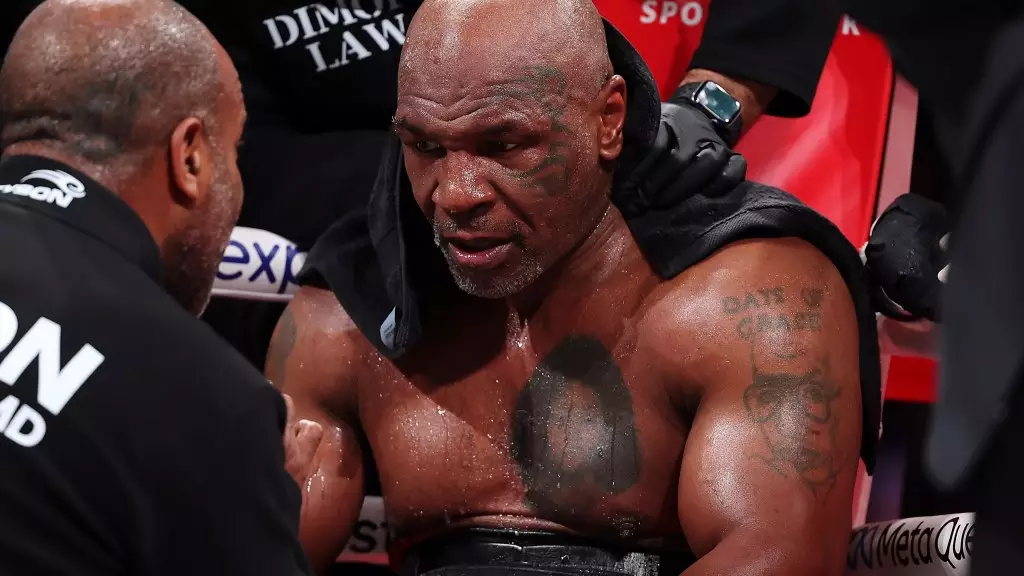The theatrical world of sports and celebrity often finds itself tangled in complex webs of contracts, endorsements, and disputes. Recently, the legendary former heavyweight boxing champion Mike Tyson has attracted attention not just for his foray into the ring against social media sensation Jake Paul, but also for the legal storm that has ensued as a result. Tyson is facing a lawsuit in London amounting to approximately €1.5 million ($1.59 million) brought forth by Medier, a company involved in promoting online gambling through its association with the brand Rabona. This case reveals deeper layers of conflict surrounding celebrity management, responsibility, and the shifting landscape of sports endorsements.
The crux of the matter lies in the accusation that Tyson and his company, Tyrannic, have violated a contract with Medier to promote their gambling site. According to the lawsuit, filed in October at the High Court of London, Medier claims that Tyson hastily breached their promotional agreement on the same day news broke of his fight with Jake Paul, which was allegedly backed by a significant deal with Netflix. Tyson’s swift termination of the contract, Medier argues, has resulted in considerable financial repercussions, estimated at around €1.46 million.
This situation poses important questions regarding contractual obligations and the ethics of celebrity endorsements. Medier insists that its conduct did not constitute a breach of their agreement, illustrating the complexity of legal interpretations in the fast-paced world of entertainment and commerce. The swift shift in Tyson’s focus from promoting a gambling enterprise to engaging in a high-profile boxing match speaks volumes about the allure of immediate fame and potential profit that can overshadow legal commitments.
Tyson’s decision to fight as a social media influencer raises eyebrows about the evolving nature of professional sports. The lines between traditional sportsmanship and entertainment have blurred, as seasoned athletes like Tyson now engage in bouts that cater to new audiences. While this strategy can invigorate interest and create lucrative opportunities, it also invites legal complexities and ethical dilemmas.
The introduction of a platform such as Netflix further complicates the narrative. Major corporations are increasingly eager to capitalize on the overlap between sports and media, resulting in hefty sponsorships and potential conflicts of interest. Tyson’s situation exemplifies the precarious balancing act that celebrities must navigate in their professional engagements, navigating contractual obligations while pursuing lucratively branded opportunities.
The implications of this case extend beyond Tyson and Medier; they highlight the precarious balance between rapid fame and contractual fidelity. As more athletes embrace crossover opportunities in entertainment, the potential for legal disputes will inevitably rise. It begs the question: how can more robust frameworks be established to protect both companies and individuals in the throes of ambition and marketability?
This confrontation between Tyson and Medier encapsulates a shifting paradigm in sports, celebrity, and business. As the landscape continues to evolve, the need for clear communication, ethical practices, and adherence to contractual obligations has never been more essential. Tyson’s fight—both in the ring and in court—serves as a cautionary tale for all involved in the lucrative intersection of sports and celebrity.

